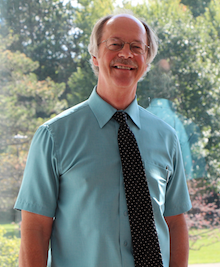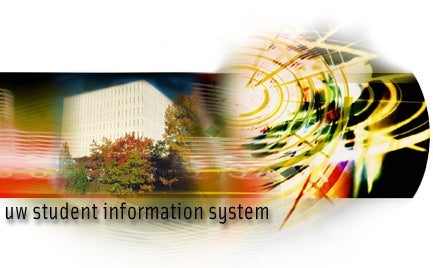Editor:
Brandon Sweet
University Communications
bulletin@uwaterloo.ca
Feridun Hamdullahpur named Chancellor of International Business University

Former President of the University of Waterloo Feridun Hamdullahpur has been named the Chancellor of the International Business University (IBU).
Based in Toronto, IBU is a private, not-for-profit institution specializing in business education, and received the approval of Ontario’s Postsecondary Education Quality Assessment Board (PEQAB) and the Minister of Colleges and Universities in 2020 for a university title and the first of its programs, a Bachelor of Commerce (BComm) in International Management and Technology. It launched its academic programs in September 2021.
"Dr. Hamdullahpur has more than 35 years of experience in Canadian and international higher education, including as President of the University of Waterloo," says the IBU announcement. "As IBU launches Ontario’s newest independent university, Dr. Hamdullahpur’s appointment symbolizes our commitment to our students and their future."
Hamdullahpur was Waterloo's sixth president and vice-chancellor from 2010 to 2021 and has been an engineer, educator and leader over the span of his career in research and higher education. A professor of mechanical engineering, Professor Hamdullahpur holds a PhD in chemical engineering from the Technical University of Nova Scotia after earning bachelor’s and master’s degrees in mechanical engineering from the Technical University of Istanbul.
Remembering Tom Ruttan
A message from Chris Read, Associate Provost, Students.

With great sadness, I share that Dr. Tom Ruttan passed away on Tuesday, September 7 after a short battle with cancer.
Tom had an unwavering, supportive presence on campus for two decades. He served as the Director, Counselling Services from 2001 until 2019 and positively touched the lives of so many students, staff and faculty. Tom led the Counselling Services department with genuine care and was always motivated to act in the best interest of students, notably launching the satellite counselling model still in use today across campus. One of many recognitions of his dedication to students occurred in 2011 when Athletics & Recreation honoured Tom’s work by awarding him the prestigious Warrior Campus Service Award.
After stepping down from the Director of Counselling Services role in 2019, he continued to support many students, staff and faculty as a Senior Advisor for the Office of the Associate Provost, Students. Tom’s calm, compassionate and gentle demeanour was evident in every conversation he had. He was a support and confidant to more people than we will ever know.
When Tom left his role as Director, he wrote to staff "I am so going to miss all of you. You are, and this place is, my Family. Please take extra special care of yourselves and each other." Great words to remember a great person. We already do and always will miss you Tom.
Information about visitation can be found here.
Fall Convocation will take place virtually

The University of Waterloo's Fall 2021 Convocation ceremonies will take place in online formats in October, according to a memo from Vivek Goel, president and vice-chancellor, circulated to employees yesterday.
"We have decided that convocations this fall will take place in a live, virtual format," President Goel writes. "This decision, taken under the guidance of government and public health officials, was not an easy one to make and has been communicated to our graduating students."
"We know that convocation is a monumental occasion and understand how this will be a disappointment for many in our community. Our top priority, however, remains the health and safety of our students, their families and our entire campus community."
"Our convocation teams of staff and faculty are working collaboratively to ensure our students continue to have a memorable experience, one that will be shared virtually on the following dates:
Friday, October 22, 2021
- 1:00 p.m. ET — Faculty of Health
- 4:00 p.m. ET — Faculty of Environment
- 7:00 p.m. ET — Faculty of Mathematics (including Software Engineering)
Saturday, October 23, 2021
- 1:00 p.m. ET — Faculty of Arts (including Computer and Financial Management)
- 4:00 p.m. ET — Faculty of Science
- 7:00 p.m. ET — Faculty of Engineering
"A special PhD reception will also be held on Thursday, October 21 at 7:00 p.m. ET," writes President Goel. "We look forward to celebrating in-person convocations again when it is safer to do so."
Up-to-date information is available on the convocation website. You can send any questions you may have to convocation@uwaterloo.ca.
Quest celebrates 20 years of student information online

A web banner from the first iteration of Quest's website in 2001.
A message from the Registrar's Office.
Did you know that Quest, our student information system, is celebrating a milestone birthday this year? As we celebrate its 20thbirthday this year, we want to recognize the project team that brought Quest to life and those who have maintained it over the last two decades. And it hasn’t been an easy task.
Quest is our largest and most complex enterprise system. It contains over five million lines of code and over a billion rows of data. The team, comprising of more than 35 employees from various areas on campus including Information Systems and Technology, Office of the Registrar, Graduate Studies and Postdoctoral Affairs, Finance, Institutional Analysis & Planning, and Centre for Extended Learning, manages the maintenance and evolution of many functions of Quest. These functions include admission processing, student course registration and grades, course builds and scheduling, awards and financial aid, and tuition assessment. In addition, data in Quest is linked with more than 50 other systems on campus, allowing them to function with ease.
Without Quest’s inception in 2001, our students would still be lining up outside Ira G. Needles Hall to make changes to their course schedule, pay fees, apply for loans and financial aid, hand in documents, apply to graduate, etc., and staff would be managing and advising via mountains of paper. Join us in thanking these employees for all the work they have done and continue to do to improve the system and its related processes. Use our Kudoboard to share your memories, reflections, and send congratulations.
While taking the time to celebrate this milestone, we are already thinking about the future of Quest. Listen to our Registrar’s take on Quest in the May 7 Beyond the Bulletin podcast.
Research aims to prevent deadly environmental disasters involving mine waste

New research will help mining companies better understand the negative societal and environmental impacts of mine-waste disasters, known as tailings flows, and hopefully avoid them.
Researchers created a database as part of a study that presents the first global picture of the occurrence rates, behaviours and physical impacts of tailings flows, which are rapid downstream movements of mine waste following failures of tailings impoundments.
The study, led by the University of Waterloo, involves researchers from across Canada and reports detailed information on 63 tailings flows that have occurred worldwide since 1928. Catastrophic tailings flows have happened once every two to three years on average since 1965, with many of these events causing death, long-lasting environmental contamination and severe infrastructure damage over distances that can span tens of kilometres. Hazardous weather and inadequate drainage systems have been the most frequent triggers for tailings flows since 1996.
"Despite the strict engineering requirements, tailings impoundments can fail, sometimes catastrophically, so our research raises awareness of the potential downstream effects for public safety purposes," said Nahyan Rana, a PhD student of earth and environmental sciences at Waterloo, and lead researcher on this project. "This study is especially relevant when we consider the global rise in mining activity."
The database will help mining engineers compare the conditions for previous incidents to those of existing sites. The researchers used historical satellite imagery to map dozens of cases of tailings flows since 1965.
By analyzing the satellite imagery and historical data, the researchers found that the behaviour of tailings flows primarily depends on a high ratio of water to solids in the tailings and the nature of the downstream terrain. Having excess stored water increases the fluidity of failed tailings.
Some tailings flows have attained maximum speeds of 100 kilometres per hour when travelling along semi-dry, narrow channels. This can lead to mass casualties and the destruction of communities and the natural environment. Some tailings flows have occurred along active rivers, leading to slower speeds but longer travel distances exceeding 10 kilometres. Tailings flows on near-flat, open terrains have travelled shorter distances but caused widespread flooding with maximum speeds of 22 to 50 kilometres per hour.
"Since 2014, there have been three high-profile events – two in Brazil and one right here in Canada," said Stephen Evans, a professor of geological engineering and co-author of this study. "While much progress has been made in terms of regulation and oversight, studying past tailings flows enables better prediction of what could happen should a major tailings impoundment failure occur."
The study, Catastrophic mass flows resulting from tailings impoundment failures, was recently published in the journal Engineering Geology. The database, A Comprehensive Global Database of Tailings Flows, can be accessed through Scholars Portal Dataverse.
This research is part of the CanBreach project, an NSERC-funded collaborative endeavour involving the University of British Columbia, Queen's University and five industrial partners - Klohn Crippen Berger, Suncor Energy, Imperial Oil, BGC Engineering and Golder Associates.
Link of the day
When and Where to get support
Students can visit the Student Success Office online for supports including academic development, international student resources, leadership development, exchange and study abroad, and opportunities to get involved.
Instructors can visit the Keep Learning website to get support on adapting their teaching and learning plans for an online environment.
Course templates are available within your course in LEARN to help you build and edit your content and assignment pages quickly.
The following workshops, webinars, and events are offered by the KL team (CTE, CEL, ITMS, LIB):
- Independent Remote Course Design Essentials, self-directed, continuous self-enrollment course in LEARN.
- Independent Blended Course Design (iBlend), self-directed, ongoing
-
Crowdmark Administered Assessment, offered September 13
-
Crowdmark Assigned Assessment, offered September 9 and September 15
-
LEARN for TAs (CTE6550), September 10, 10:00 a.m.
Employees can access resources to help them work remotely, including managing University records and privacy of personal information. Here are some tips for staying healthy while working from home.
Stay informed about COVID cases on campus by consulting the COVID case tracker.
The Writing and Communication Centre has virtual services and programs to help undergrads, grad students, postdocs and faculty members with academic writing.
- Meet with writing advisors in one-to-one appointments to brainstorm, draft, revise, and polish. No time for an appointment? Try email tutoring for undergrads.
- Beat isolation and make writing progress at weekly Virtual Writing Cafés for grad students and faculty or PJ-Friendly Writing Groups for Undergrads.
- Take an online workshop or apply to our popular Dissertation Boot Camp program.
- Faculty can request custom in-class workshops for their courses, or the WCC can facilitate any existing workshops for student groups.
Co-op students can get help finding a job and find supports to successfully work remotely, develop new skills, access wellness and career information, and contact a co-op or career advisor.
The Centre for Career Action (CCA) will be expanding some in-person services for fall 2021. The Tatham Centre will be open with front-desk support beginning September 7, with limited in-person appointments and co-op consults beginning September 20. All services will continue to be offered virtually this term. Book an appointment online or visit our Live Chat to connect with our Client Support Team. The CCA is here to help.
If you feel overwhelmed or anxious and need to talk to somebody, please contact the University’s Campus Wellness services, either Health Services or Counselling Services. You can also contact the University's Centre for Mental Health Research and Treatment. Good2Talk is a post-secondary student helpline available to all students.
While the Library continues to focus on digital resources and consultations, our spaces are open for the fall term. Dana Porter Library is open Monday to Friday, 9 a.m. to 5 p.m., and Davis Centre Library is open Monday to Friday, 9 a.m. to 11 p.m., and Saturday and Sunday, 11 a.m. to 5 p.m. for drop-in individual study space, bookable individual study rooms, drop-in access to computers and printers, book pick-up services and IST Help Desk support. Special Collections & Archives and the Geospatial Centre will be accessible by appointment. Library staff are available for questions via Ask us. Full details on current services and hours are available on the Library’s COVID-19 Update webpage.
The Faculty Association of the University of Waterloo (FAUW) continues to advocate for its members. Check out the FAUW blog for more information.
The University of Waterloo Staff Association (UWSA) continues to advocate for its members. Check out the UWSA blog for more information.
The Sexual Violence Prevention and Response Office (SVPRO) supports all members of the University of Waterloo campus community who have experienced, or been impacted, by sexual violence. This includes all students, staff, faculty and visitors on the main campus, the satellite campuses, and at the affiliated and federated Waterloo Institutes and Colleges. For support, email: svpro@uwaterloo.ca or visit the SVPRO website.
The Indigenous Initiatives Office is a central hub that provides guidance, support, and resources to all Indigenous and non-Indigenous campus community members and oversees the university Indigenization strategy.
The Waterloo Indigenous Student Centre, based at St. Paul’s University College, provides support and resources for Indigenous students, and educational outreach programs for the broader community, including lectures, and events.
WUSA supports for students:
Peer support - MATES, Glow Centre, RAISE, Women’s Centre - Visit https://wusa.ca/peersupport to book an appointment either in person or online for the Fall term!
Food Support Service food hampers are currently available from the Turnkey Desk 24/7 in the Student Life Centre. Drop off locations are also open again in SLC, DC, DP, SCH and all residences.
Bike Centre – Open for drop in and Rentals
Co-op Connection all available online. Check https://wusa.ca for more details.
Centre for Academic Policy Support - CAPS is here to assist Waterloo undergraduates throughout their experience in navigating academic policy in the instances of filing petitions, grievances and appeals. Please contact them at caps@wusa.ca. More information is available.
WUSA Student Legal Protection Program- Seeking legal counsel can be intimidating, especially if it’s your first time facing a legal issue. The legal assistance helpline provides quick access to legal advice in any area of law, including criminal. Just call 1-833-202-4571.
Empower Me is a confidential mental health and wellness service that connects students with qualified counsellors 24/7. They can be reached at 1-833-628-5589.
When and Where (but mostly when)
Healthy Warriors at Home(Online Fitness)
Warrior Rec Registration. Starts September 7. A wide range of programs are being offered this term. Intramural deadline: September 13, 11:00 a.m. Instructional deadline: September 19, 11:59 p.m. Register online.
Warriors vs. Laurier Blood Donation Battle. Join your fellow Warriors, donate blood and help us win the Blood Battle against Laurier for a second year in a row. Set up a profile or add the PFL code: UNIV960995 to your account if you have a blood.ca account already. Questions? Contact WarriorsInfo@uwaterloo.ca.
Drop-in to Warrior Virtual Study Halls on Wednesdays from 5:30 p.m. to 7:00 p.m. Come together in this virtual space to set goals and work independently or in groups each week.
Renison English Language Institute continues to offer virtual events and workshops to help students practice their English language skills.
Free Fitness on Warrior Field, Thursday, September 9, 12 noon (HIIT). Registration required.
Introduction to Equity Workshop, Thursday, September 9, 9:00 a.m. to 12 noon. This workshop, formerly called EQ101 is a foundation course for those who are looking to get a baseline understanding of core equity concepts and frameworks. All welcome.
2SLGBTQ+ Fundamentals, September 14, 1:00 p.m. to 3:00 p.m. This is an introductory workshop to help Waterloo students and employees develop greater understandings of 2SLGBTQ+ identities, gain knowledge about protected rights, and, identify and explore barriers to develop and foster actions that create a more welcoming campus environment and offer meaningful and relevant support. All are welcome.
NEW - Indigenous Employee Virtual Social, Tuesday, September 14, 2:00 to 3:00 p.m. The Indigenous Initiatives Office invites all Indigenous employees and retirees of the University of Waterloo and the Affiliated and Federated Institutions to a virtual social. All of Turtle Island’s First Nations (Status/Non-Status), Métis, Inuit employees and retirees are welcome.
Athletics and Rec Virtual Open House, Tuesday, September 14, 3:00 p.m. to 3:30 p.m. Find out how to get active and engaged with Warriors Athletics and Rec this term. One lucky participant will win $25 to Freshii. Registration required.
NEW - Waterloo’s Equity Survey: Ask Us Anything About Data Collection & Security, Tuesday, September 14, 3:00 p.m. to 3:45 p.m. Virtual event open to all campus community members to learn more and ask questions about Waterloo’s Equity Survey. All are welcome.
Warriors Football Home Opener. Saturday, September 18, 6:00 p.m., Warrior Field. Minor League Day, Residence and Employees Day, The Alliance “We Are One” Game. Purchase your tickets in advance (coming soon).
PhD oral defences
Psychology. Madison Stange, "Examining the Influence of Scratch Card Structural Characteristics on Psychophysiology, Motivation, and Gambling Behaviour." Supervisor, Mike Dixon. Available upon request from the Faculty of Arts, Graduate Studies and Research Officer. Oral defence Tuesday, September 14, 1:00 p.m.
English Language and Literature. Sara Gallagher, "Black Frontiers: Race, Region, and Myth in African American Westerns, 1854-1954." Supervisors, Victoria Lamont, Jennifer Harris. Available upon request from the Faculty of Arts, Graduate Studies and Research Officer. Oral defence Thursday, September 16, 1:00 p.m.
Geography and Environmental Management. Benjamin Meinen, “Measuring and modelling soil erosion in agricultural systems: Evaluating the application of UAVs and SfM-MVS for soil erosion research”. Supervisor, Derek Robinson. Available upon request from the Faculty of Environment, Administrator, Graduate Studies. Oral defence Friday, September 17, 9:00 a.m.
Computer Science. Stavros Birmpilis, "Fast algorithms for computing with integer matrices: normal forms and applications." Supervisors, George Labahn, Arne Storjohann. Thesis available from MGO - mgo@uwaterloo.ca. Oral defence Friday, September 17, 10:00 a.m.